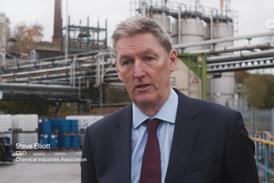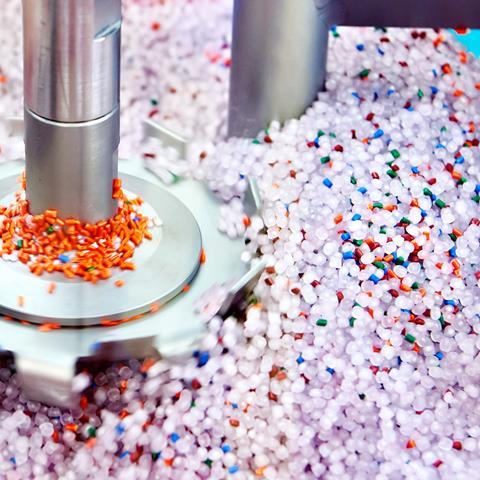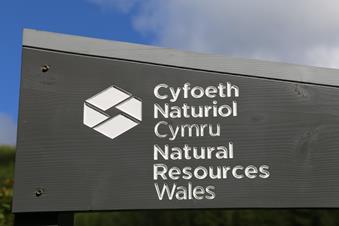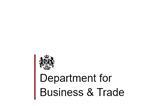Plastics bring immense benefits to society, from their use in medical applications, through to their use in vehicles to make them more fuel efficient and keeping our food safe. However, as a result of their wide-use they can find their way into the environment. Over the course of the past few years, concern has grown considerably towards the quantity of plastic waste and its impact on our environment including both human health and wildlife health particularly from microplastics.
Current status
Policy makers in the UK and across the world are looking at ways to address plastic pollution. In the UK we have already seen the implementation of initiatives with a tax on plastic carrier bags being introduced in 2015, implementation of a ban on the manufacturing and use of plastic microbeads in rinse-off personal care products in England, Scotland and Wales in 2018. The UK Government is now considering banning the manufacture and sale of specific single use plastics, these being cotton buds, plastic stirrers and plastic straws. Further to this, the Chancellor announced in the 2018 Budget that the government intends to:
- Introduce a tax from 1 April 2022 on produced or imported plastic packaging containing less than 30% recycled content (subject to consultation);
- Reform the Packaging Producer
- Responsibility System;
- Use the revenues from the above to enable investment to address single-use plastics, waste & litter; and
- Make £20 million of funds available, divided equally between plastics R&D and development of innovative approaches for boosting recycling and reducing litter.
Furthermore, the UK Government’s 25-Year Environment Plan (applicable to England only) sets a target of zero avoidable plastic waste by 2042 with a general objective for reducing & preventing marine plastic pollution. Numerous voluntary initiatives have also been announced by retailers, bars and restaurants e.g. switching from plastic to paper straws.
In Europe a strategy on plastics in a circular economy and also legislation against some single use plastics are being debated. In addition, the European Chemicals Agency is considering the feasibility of using the EU legislation Registration, Evaluation, Authorisation & Restriction of Chemicals (REACH) to restrict certain microplastics. At a global level, a United Nations Resolution was signed by countries in December 2017.
Our Opinions and Actions
CIA fully appreciates the concerns around the use and disposal of plastics. Finding the right balance so that society can continue to benefit from the added value brought by plastics and negative aspects arising from their end of use (waste) are effectively managed is vital.
- In response to the Budget 2018 announcement, a plastics packaging tax will need careful consideration in terms of its application and we welcome that the government will be consulting on this further. Whilst we agree with the intention to increase recycling, it is essential that the UK has the recycling infrastructure in place to meet demand. It is important that the proposed tax is backed up by weight of evidence and sound science – in this case ensuring a universal ‘cut-off’ figure for recycled content is technically feasible in the targeted applications; companies should not be penalised where it is not possible to comply. Regarding the reform of the Packaging Recovery Notice system, we believe this would deliver a better environmental performance and the additional funding for R&D and innovation is welcomed.
- Plastics have a clear role in today’s and our future society due to their use enabling the saving of significant amounts of energy and reduction of harmful carbon dioxide (CO2) greenhouse gas emissions in comparison to alternative materials. For example, plastics are used in the manufacture of cars and aeroplanes thereby enabling them to be lighter in weight, have lower fuel consumption and reduce emissions. In the case of plastic food packaging, they not only reduce transport emissions but also have the additional benefit of providing an essential barrier enabling effective food protection and longer shelf life resulting in minimising food waste. Food wastage in developing countries can be as high as 50%; in the UK only 3% goes to waste before it reaches the supermarkets. Packaging makes a considerable contribution to this.
- Circular economy thinking from design and production, right through to waste management are essential aspects for achieving this balance. Alongside this, societal behavioural changes are also required including measures to prevent and reduce littering and better collection and sorting systems of plastics (and non-plastics).
- This circular economy thinking needs to be balanced in terms of encouraging an increase in recycling rates, especially for short-life plastic articles, as well as implementation of other measures. Many long-life plastics are beneficially effective in their use to society and have carbon footprints that are lower compared to that for wood, glass, paper, fabrics and ceramics.
- For the purpose of setting effective legislation, we need definitions for the terms ‘plastic’ and ‘microplastic’ that are based on science. These should be pragmatic, so that we do not unjustifiably include substances defined as polymers which are not plastics and thereby risk losing the benefits they bring to society; this brings regulatory certainty and clarity of scope.
- CIA members are already taking action. This can be seen through their innovation and product design, as well as implementation of voluntary sustainable commitments such as the chemical sector’s Responsible Care initiative covering both resource efficiency and environmental performance. Furthermore within the plastics industry, the UK Plastics Pact sets targets for recycling, reuse and composting by 2025. Other examples include the European wide VinylPlus® sector that aims by 2020 to recycle 800,000 tonnes of poly (vinyl chloride) (PVC) per year and Plastics 2030, a voluntary commitment from the European trade body PlasticsEurope, which has three objectives: increasing re-use and recycling, preventing plastics leakage into the environment, and accelerating resource efficiency. Globally, Operation Clean Sweep a voluntary stewardship programme, run by the British Plastics Federation here in the UK, helps facilities implement procedures to keep plastic materials out of our waterways and eliminate plastic pellet, flake and powder loss.
- We recognise we can still do more, yet this often requires government help in achieving. One such example of where government can assist is by helping industry clusters to improve their production processes through initiatives whereby the wastes or byproducts of one manufacturing site can be used as raw materials by another. Government (and EU) policies must also lead the way with capital investments being made to incentivise this, such as supporting new technologies, improving the recycling infrastructure including eliminating barriers where appropriate to allow wastes to be assessed quickly for use as renewable feedstock or other purposes. In fact the technology for chemical recycling is already here whereby residual plastic waste that cannot be mechanically recycled can be turned back into the oil it originally came from for use as feedstock – in the UK the success of a pilot plant in Swindon has already led to the building of a full scale commercial operation in Scotland. According to the company behind this, for every 1 tonne of plastic treated a saving of 1.8 tonnes carbon dioxide is made compared to the incineration of plastics to produce energy.
- Whilst increasing recycling rates is one way to tackle plastic waste, caution is needed on how to achieve this since there is a technical limit on the amount of recycled material that can be used in a product made from plastic as above this it becomes inferior in its quality and function. Meeting a universal ‘cut-off’ level for inclusion of recycled content may not technically be feasible for all packaging types and therefore a caseby- case approach could be a better way forward to ensure that companies are not unjustifiably penalised. Many plastics companies already use recycled material to a maximum within their products without jeopardising properties and hence CIA supports encouraging businesses who have not invested in using recycled material to catch up.
- CIA encourages initiatives addressing societal behaviours towards the responsible use of plastics, as well as others such as deposit return schemes since considerable progress in reducing plastic waste can be achieved by such approaches.
Conclusion
CIA and its member companies believe, we as a society, need to find the balance between the benefits from the added value brought by plastics and the negative aspects arising from their end of use (waste). Plastic litter is a global issue and therefore all stakeholders need to find effective ways for sharing learning from initiatives, so that as one collective society we realise the benefits for taking positive action towards achieving a more sustainable use of plastics. The UK Chemical Industries Association (CIA) believes that by all stakeholders working together we can realise the opportunity for creating a step change here in the UK (as well as elsewhere) by truly moving towards achieving both circularity and sustainability for plastics.
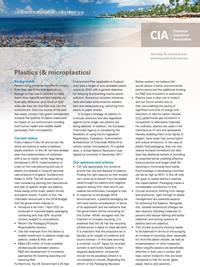
Plastics and microplastics
CIA fully appreciates the concerns around the use and disposal of plastics. Finding the right balance so that society can continue to benefit from the added value brought by plastics and negative aspects arising from their end of use (waste) are effectively managed is vital.
DOWNLOAD




